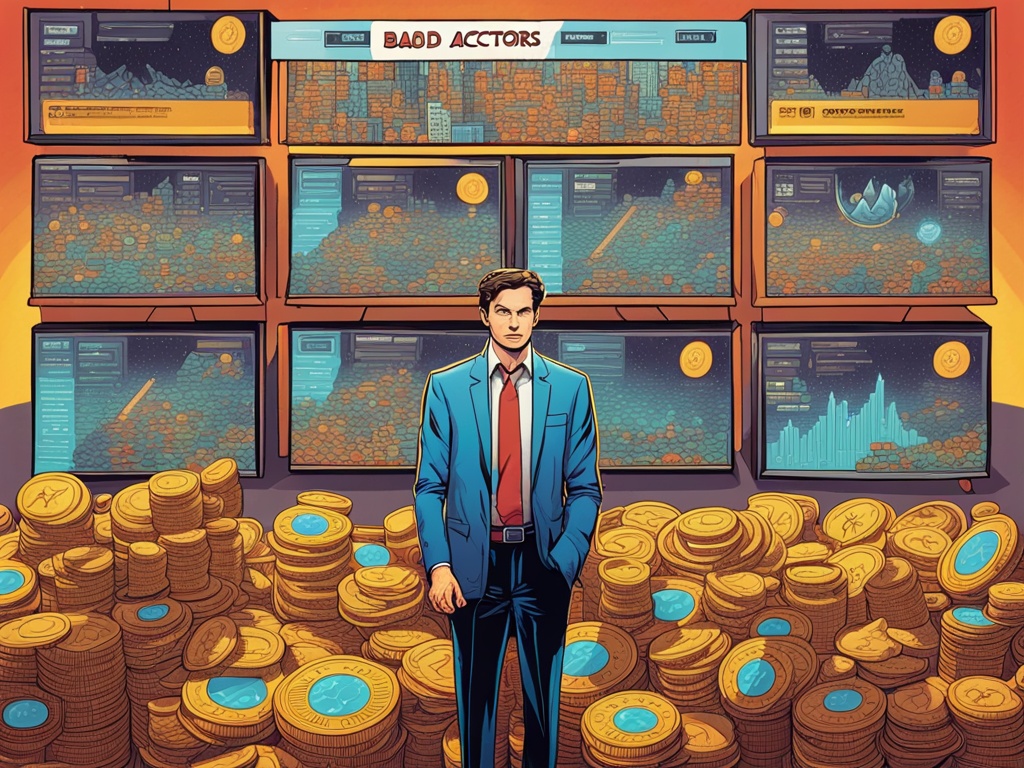Is the Crypto Market in Trouble or Just in Need of a Stronger Framework?
You might be wondering, with all the recent chatter and headlines around regulation, whether investing in cryptocurrency is a wise choice today. Let’s unpack what’s going on in the landscape and how it impacts potential investors.
Key Takeaways
- Gary Gensler, the SEC Chair, insists that the crypto market is full of “bad actors”.
- Over 100 enforcement actions have been taken against crypto entities under his leadership.
- Gensler categorizes most cryptocurrencies as securities, advocating for stricter regulations.
- Many crypto projects are driven by sentiment rather than solid fundamentals, increasing volatility.
- The debate around regulation is heating up, with significant pushback from the crypto community.
Now, let’s dive deeper into this whole situation.
Understanding the Landscape: Gensler’s Perspective
Gary Gensler, the head of the U.S. Securities and Exchange Commission (SEC), has certainly stirred the pot in the crypto space. In a recent interview with Bloomberg, he lamented the state of the crypto market, branding it as “rife with bad actors.” Talk about a statement that raises eyebrows!
During his tenure, he’s overseen more than 100 enforcement actions related to cryptocurrency—a steep climb from his predecessor who initiated around 80 cases. This focus has been largely on scams, fraud, and projects that blatantly ignore securities laws. With the crypto market making up less than 1% of the $120 trillion U.S. capital markets, Gensler’s attention suggests that there’s something about this sector that has regulators on high alert.
The "Bad Actors" Behind the Curtain
Let’s face it. It can feel like a wild west sometimes in the crypto universe. According to Gensler, many digital currencies do meet the definition of securities, which should put them under the SEC’s microscope. His assertions reveal some unsettling truths: investors are at risk, and many crypto project operators aren’t playing by the rules.
“Right now, the crypto market is rife with bad actors,” Gensler pointed out. This is a wake-up call for you, the investor. Scams and fraudulent activities are rampant, and the advice is simple: do your homework.
The Sentimental Rollercoaster
If you’ve kept your ear to the ground, you’ve probably noticed that crypto markets fluctuate wildly. Gensler attributes this volatility to sentiment-driven trading rather than solid fundamentals. Imagine riding a rollercoaster that suddenly drops and swings left and right—exciting, yet dizzying, and not always fun if you just want a steady investment!
To navigate through this choppy sea, consider following these tips:
- Research Thoroughly: Don’t just jump into the latest hype. Look at the fundamentals of the project.
- Diversify Your Portfolio: If you decide to invest, spread your investments across various projects to mitigate risks.
- Follow Regulatory News: Changes in regulations can dramatically affect market conditions, so staying informed is key.
- Avoid Emotional Trading: It’s tempting to sell when prices drop, but try to stick to your strategy.
The Pushback From the Crypto Community
Gensler hasn’t been without his share of critics. Some lawmakers have labeled him as the most destructive SEC Chair for the crypto industry, while others claimed he initiated a “reign of terror.” This indicates a divide between regulatory efforts and the needs of the crypto community. Yet, Gensler himself has defended his position, viewing his role as foundational for investor protection and market integrity.
"If you’re not willing to be attacked, you can’t debate policy," he asserted. This is a crucial viewpoint that serves as a reminder: regulation is often about creating a safe space in which investors can thrive.
What Does This Mean for You?
With all this information swirling about, you might be left pondering how to interpret it all for your investment strategy. Essentially, it highlights a pressing need for regulatory clarity in the crypto realm. As an investor, you should weigh the risks associated with investing in areas that are under intense scrutiny, while also acknowledging that regulation can lead to long-term stability.
So here’s a thought for you: How do we balance the innovation and freedom that cryptocurrency represents against the need for stability and protection for investors?
In wrapping this up, the crypto market is certainly at a crossroads. Things could get tumultuous, but with challenges come opportunities. If you play your cards right and remain astute, this could be your chance to shine in the digital gold rush! What are your thoughts on how you should approach investing now?





 By
By
 By
By
 By
By
 By
By
